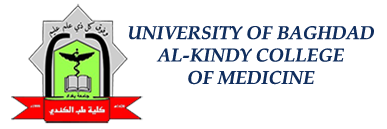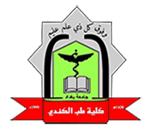Al-Kindy College of Medicine convened a comprehensive awareness campaign addressing one of Iraq’s most critical social challenges: early and child marriage. Organized by the Women’s Affairs Unit in cooperation with the Student Volunteer Human Rights Committee and the Psychological Counseling and Educational Guidance Unit, the initiative aimed to present factual information, highlight associated risks, and propose concrete measures to protect underage girls.
Early marriage remains prevalent in several Iraqi provinces, often driven by economic pressures, cultural norms, and limited access to education. Al-Kindy College of Medicine recognized the urgency of this matter and mobilized academic, health, and social resources to engage students and staff in a coordinated effort to mitigate its adverse effects. By publishing educational materials and facilitating structured workshops, the campaign sought to inform participants of legal requirements, health implications, and psychosocial consequences, while fostering a supportive environment for at-risk girls.
Distributed throughout campus including lecture halls, student dormitories, and communal areas ,brochures provided a concise yet comprehensive overview of early marriage in Iraq:
Statistical Overview: Infographics and data tables illustrated regional variances in underage marriage rates, emphasizing provinces with the highest incidence and correlating these figures with socioeconomic indicators.
Legal Framework:Clear references to Iraqi statutes delineated the minimum legal age for marriage and prescribed penalties for noncompliance, thereby reinforcing the importance of adhering to national legislation.
Physical Health Consequences: The brochures detailed obstetric complications associated with adolescent pregnancies ,such as obstetric fistula, preterm labor, and elevated maternal mortality ,underscoring that a girl’s physiological development remains incomplete before age eighteen.
Psychological and Social Impact: Narratives and clinical findings addressed the heightened risk of anxiety, depression, and post-traumatic stress among child brides, as well as the loss of educational opportunities that perpetuate cycles of poverty.
Economic Ramifications: Charts demonstrated how premature school dropout among girls reduces future earning potential, affecting familial stability and broader community development.
To translate awareness into empowerment, the campaign incorporated three concurrent Strategic Guidance & Development (SGD) workshops:
- Empowerment of Female Students: Facilitated by faculty from the Department of Psychology, this workshop provided essential leadership training, self-advocacy techniques, and instruction on legal rights. Participants engaged in structured role-play exercises—simulating dialogues with family members and community leaders—to practice effectively asserting their autonomy.
- Stakeholder Training: Designed for faculty, counselors, and representatives of local non‐governmental organizations, this session focused on early identification of at-risk families, intervention protocols, and coordination with social services. Attendees received guidelines on conducting supportive counseling sessions and referring cases to appropriate legal and healthcare authorities.
- Resource Mobilization and Partnerships: In a collaborative planning exercise, attendees identified potential partnerships with governmental ministries, international agencies, and philanthropic entities. The objective was to establish scholarship funds, legal aid clinics, and targeted educational programs to support girls vulnerable to early marriage.
The Assistant Dean for Scientific Affairs affirmed, “Al-Kindy College of Medicine recognizes that safeguarding the health and rights of our youth extends beyond conventional medical education. By collaborating with academic, social, and governmental stakeholders, we endeavor to address the root causes of early marriage and provide sustainable support to vulnerable populations.”
Through this formal, multi‐faceted approach, Al-Kindy College of Medicine reaffirms its dedication to community service and public health education. By combining empirical evidence, practical training, and sustained institutional support, the College aims to effect meaningful change in the lives of Iraqi girls and, by extension, the broader community.


















